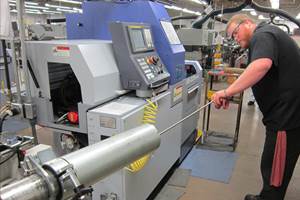Teaming Up in the Swiss Shop
This company capitalizes on employee empowerment and creativity to strengthen the work environment, improve production numbers and exceed customer expectations.
From training strategies to production planning, this Oxford, Massachusetts, Swiss shop has the right tools in place for long-term performance and growth. All employees are encouraged to continue learning and to develop ideas for improving what is already a successful company. They are rewarded with a superior work environment that is proven by long employee retention.
Company Roots
Swissturn/USA began business in 1987 as a successor to President Ken Mandile’s father’s business, which had been making conventional Swiss screw machine products for the previous 18 years. The senior Mandile was trained as a watchmaker at the Waltham Watch Factory. When the watch factory closed, John Mandile was able to transition his eye for precision to a new career in the Swiss screw machine industry.
Sixty-plus years later, the tradition of precision remains. About 40 percent of the business is medical device related. It also does gun components, laser parts, and a general mix of other parts. While higher volume work that can be run lights out is often the goal, the company also does a fair amount of complex work during the first and second shifts.
Relocating a couple of times, the company settled in its current Oxford location in July 2013. It took over an abandoned warehouse and completely renovated it to allow for continuing growth and to provide a comfortable environment to fit the culture that is promoted among the employees.
Working with essentially only a shell of a building when Swissturn first moved in, employees were able to play a significant role in both the design of the office space and the layout of the shop floor. Office Manager Valorie Ray, who has been with the company for almost 20 years, says that employees are encouraged to work together as a team. This cooperative effort was apparent in the design of the workspace and continues on a daily basis as employees are cross-trained to provide backup for each other.
With about 50 employees, the company is a good size for promoting effective communication among employees as well as with customers and vendors. Information flows well, allowing quick response to requests and issues. “Our employees are very dedicated, and we have great retention,” Ken Mandile says. “It’s hard to find good help, and once you have it, you need to do what you can to keep it. A good work environment is vital to that.”
Equipment
Swissturn has assembled an impressive lineup of 26 Swiss machines from Star CNC Machine Tool Corp. Twelve are SR-10J models with enhanced secondary machining capability featuring C-axis control on both the main and subspindles. These machines are designed to handle the tight accuracies of small parts, with high spindle speed (15,000 rpm) and rapid traverse with a three-spindle drilling unit for secondary machining. While Swissturn does use some of its other machines for lights out as well, depending on the job, these SR-10J machines tend to be used specifically for longer-run, “easier” jobs, running through the weekends when possible. “These are fast machines, doing small-diameter work—mostly brass—perfect for lights out,” Mr. Mandile says.
Most of the company’s other machines are 20-mm Star SR-20 models, which handle much of the complex work typical of the medical components the company produces. An SR-32J rounds out the turning center lineup, designed for power, rigidity and reduced cycle times. The company will soon be adding another of these machines to satisfy a particular demand on a new job from a customer.
“We typically add a couple of new machines each year,” Mr. Mandile says. The shop floor is designed to hold 40 machines. He explains that the biggest reason the company moved to this location is that it previously did not have enough space to expand. While 40 machines may be several years out and will create a tight work area, this building allows for further expansion by building out as well.
Mr. Mandile believes in sticking with what has worked well for the company, thus the unwavering lineup of Star machines. He is pleased with the machines’ performance and the support the company receives, but this strategy also allows programmers, operators and maintenance personnel to become well acquainted with what they’re working on. Even across different models, many of the parts are interchangeable, so Swissturn keeps a fair number of motors and bearings and other parts in stock for maintenance. “If something goes down, our two full-time maintenance people can often resolve the issue right away,” Mr. Mandile says. The maintenance personnel do a lot of preventive maintenance as well.
Self-Directed Work Teams
One of the things that Mr. Mandile feels sets his company apart is the creation of self-directed work teams across the shop floor. Three work teams consist of between six to eight people each, stretching across both of the company’s manned shifts. The teams are given full responsibility for their work orders, scheduling them and making sure they have the necessary materials to complete the job. The teams are assembled to bring each person who works on a particular job closer to the process, so each team has its own coordinator, setup personnel, operators, inspector and trainee.
The previous hierarchal system saw a single person overseeing the process as other individuals had their own responsibilities and would essentially wash their hands of the job once their part was complete. As a team, everyone works together to make the process more efficient as they are all equally responsible for getting the job out the door. They schedule their own jobs, and if adjustments need to be made, they make them, typically without any involvement from management. Mr. Mandile says the teams know their machines and the current jobs the best, so they are best suited for making the critical decisions to facilitate a smooth production process.
“We do have supervisors who oversee and help the teams as needed, but we’re trying to move the teams to being as independent as possible so we don’t have to manage them,” Mr. Mandile says. He wants them to work as if they are their own separate job shops within the company. This structure provides a sense of authority and responsibility, making their jobs more rewarding. Team members see that their work has a direct impact on better results.
Another advantage of the team concept is that they get to know the jobs better. When a repeat job comes back, it goes to the same team who is already familiar with it. The team knows exactly what it took to get the job going, any issues or modifications that happened the last time.
Each team consists of a different mix of work and machines and skill level, so they don’t compete against each other. It’s not a level comparison. However, the teams are encouraged to improve on their own performance, and hitting improvement goals is a consideration for future competition among teams. Team 2 is in charge of all of the newer 10-mm machines, typically handling the long-run brass jobs with a lot of lights-out production. This team targets about 85-percent uptime, while the other teams may only be expected to reach 50 percent. As with any shop, machine uptime is one of the most important factors in profitable business, so it’s important for the teams to be aware of this performance.
Shopfloor Monitoring
To help the work teams keep better track of their performance, Swissturn has developed its own machine monitoring system. The system has been in place for about 5 years, being continuously improved, but in the last year and a half it’s showing its greatest impact.
A series of 50-inch monitors is now suspended over the shop floor—two for each work team. These monitors show the status of all of the machines for which the team is responsible, displaying whether the machines are running, are powered off or have an alarm. They also show percentages of uptime in the previous hour and previous 24 hours for each individual machine as well as for all of the team’s machines combined.
Dan Wells, the company’s full-time computer programmer, developed the system. He also has created a messaging system for the shop floor that runs on separate big-screen monitors. This messaging system allows quick and convenient sharing of information throughout the company, from customer service to production to shipping and receiving.
All of the information from both the machine monitoring and the messaging system is linked through the server to all of the company’s PCs as well, so office personnel have easy access to the information. Each machine is hard-wired to the data collector, which feeds the data to the PC where it is processed and sent to the big screens.
Swissturn is also beginning to incorporate the use of tablets on the shop floor to allow faster scheduling, and this data is linked to a Global Shop Solutions ERP system. The goal is to eventually tie all the systems together for data collection and analysis.
Feeding the Success
Business is very strong for Swissturn right now. Mr. Mandile says the backlog is the biggest it’s been since 2007 and the company has been working for several years to develop a strong foundation for its management structure and information systems so it is prepared to handle such growth.
By serving a variety of markets, the company is not heavily affected by down cycles in one area because other areas then tend to get stronger and bring increased business. Growth has been strong because of the stability of current customers and the strong commitment of company employees to support those customers. Much of that positive attitude comes from the way the company involves the employees in the decision making process.
Operations Manager Dean Russell says the success of these strategies is dependent on effective training. “The trick is to find good people and train them well,” he explains. “When we bring someone in, we don’t only train them for their jobs, but we also try to train them for their lives. We teach them to think and to problem solve.” Rather than managing people, the company employs more of a leadership strategy, giving the employees the freedom to discover the best ways to get the job done.
Related Content
New Thinking from the New Generation for the New Year
“We have to learn to think in a new way.” –Albert Einstein
Read MoreEmerging Leader's Problem-Solving Skills Cool Down a Hot Project
This 2023 Emerging Leader developed a product in response to a call for help from Yamaha that was a huge hit in the snowmobile industry when it hit the market in 2010. In fact, it is now a common product that most snowmobile OEMs have implemented.
Read MoreSuccession Planning: Three 15-Minute Activities to Start Preparing for Tomorrow
Succession planning is planning for the future success of your business.
Read More6 Tips for Training on a Swiss-Type Lathe
There are nuances to training a person to effectively operate a Swiss-type lathe. A shop I visited a while back offers some suggestions.
Read MoreRead Next
Medical Parts are Redefining Swiss-Type Machining
Machining for medical devices is changing what constitutes a Swiss-type part.
Read MoreDo You Have Single Points of Failure?
Plans need to be in place before a catastrophic event occurs.
Read MoreA Tooling Workshop Worth a Visit
Marubeni Citizen-Cincom’s tooling and accessory workshop offers a chance to learn more about ancillary devices that can boost machining efficiency and capability.
Read More


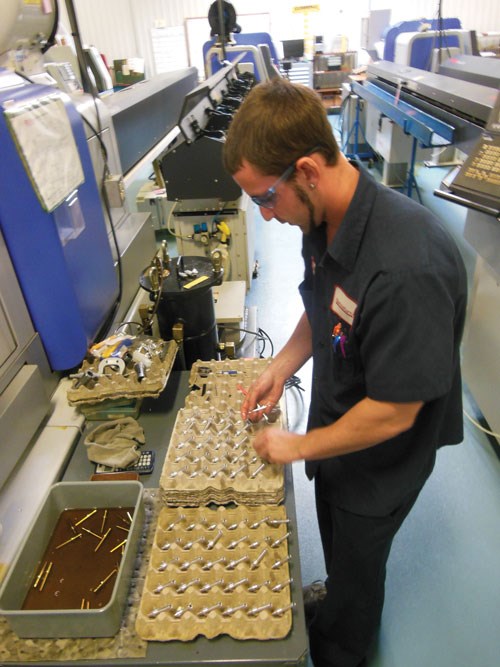
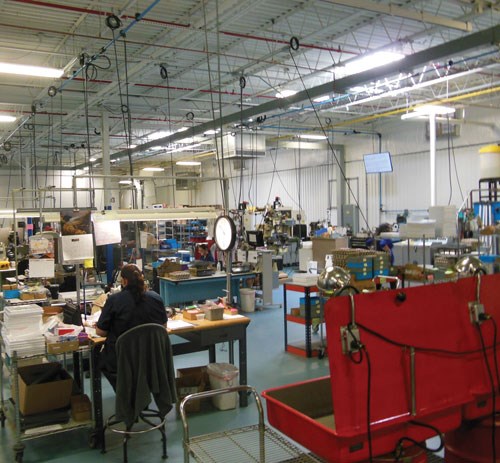
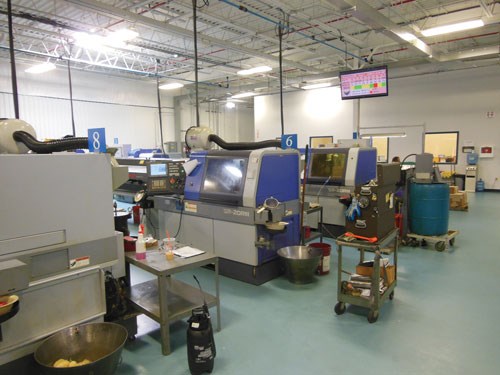
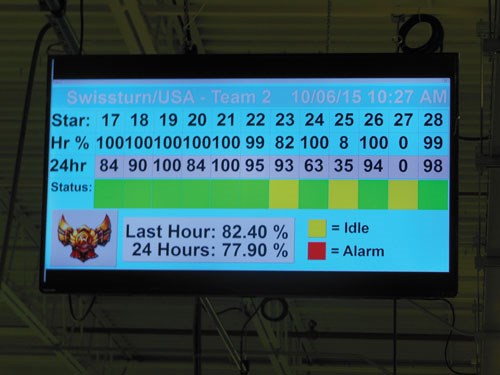







.jpg;maxWidth=300;quality=90)








